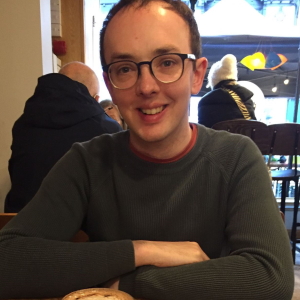Biography
I joined Keele University in 2021 as a Senior Lecturer in Cognitive Psychology, having worked previously at the University of Huddersfield for six years. I carried out my PhD work at University College London (UCL) and went on to become a Postdoctoral Fellow at the University of British Columbia in Vancouver.
My work explores the cognition of how people make a lie or truth judgment. This work has culminated in the Adaptive Lie Detector account (Street, 2015). My research has included working with national organisations to create evidence-based interventions to reduce susceptibility to phishing and smishing scams. I make use of a combination of behavioural, eye tracking and modelling techniques. This work has been recognised through funded projects and an APS Rising Stars award.
I am always interested to hear from students wishing to pursue graduate studies (MSc, PhD) in the cognition of deception and lie detection.
Research and scholarship
My work is at the intersection of human cognition and psychology and law to understand how people decide when and why to trust or distrust information. My work takes three broad approaches.
Theoretical understanding of decisions to (dis)believe
Having a deeper, evidence-based impact on society requires establishing and testing basic psychological theory. The Adaptive Lie Detector theory (Street, 2015) provides a process-oriented explanation of when and why people decide what to believe. The theory has been supported by behavioural and modelling work and has received support in independent laboratories.
Real-world decisions to trust
I have led and am leading projects seeking to develop evidence-based interventions to reduce susceptibility to phishing and other forms of fraud while also seeking overt markers and indicators of trust. I have carried out this work in collaboration with local and national agencies and organisations, and am always excited to discuss problems that industry and public sectors are facing that may be addressed through academic research.
Decisions under uncertainty
I am fundamentally interested in the simple penny problem: which hand is it hidden in? My work has considered how people decide to deceive, how the decision to cheat waivers and unfolds over time, and whether people are able to recognise their own uncertainty in making lie-truth judgments.
My research has included working with national organisations to create evidence-based interventions to reduce susceptibility to phishing and smishing scams. I make use of a combination of behavioural, eye tracking and modelling techniques. This work has been recognised through funded projects and an APS Rising Stars award.
I have been fortunate enough to have collaborated with North Yorkshire Police, Bob's Business, Bradford Safeguarding Children Board, among others.
Funded projects have included:
- An evidence-based psychological intervention to improve cyber security behaviour (Innovate UK)
- A computational model of engagement with SMS scams (ESRC)
I am a keen advocate of working and communicating with the public.
Teaching
My approach to teaching aims to focus on developing students' evaluative reasoning capacity and on encouraging independence. I have a keen interest in teaching quantitative statistics. I currently contribute to teaching on:
- Advanced Cognitive Neuroscience Research Methods PSY-40053
- MSc Dissertation PSY-40045
- Final Year Project PSY-30061
- Module Team Member PSY-20023 Cognitive Neuroscience
- Module Team Member PSY-40053 Advanced Cognitive Neuroscience Research Methods
I am also the Curriculum Stream Lead for Research Methods on the undergraduate programme.
Publications
Collaborations and grants awards
I have been fortunate enough to have collaborated with North Yorkshire Police, Bob's Business, Bradford Safeguarding Children Board, among others.
Selected funded projects
A Computational Model of Lie Detection in SMS Scams. ESRC New Investigator. £124,523.
Knowledge Transfer Partnership Between Bob's Busines and University of Huddersfield. Innovate UK and Bob's Business. £158,747.
PhD applicants
I welcome applications from students who wish to undertake MPhil or PhD postgraduate research studies. Interested students can contact me directly on c.street@keele.ac.uk to discuss potential projects as well as the application process for these degrees.
Please note that students wishing to apply for funding scholarship opportunities shoudl contact me well in advance of the deadline in order to effectively support your application.
My current research interests are indicated in the Research and Scholarship tab above. I have supervised PhD projects on juror decision-making and social engineering, but have a particular interest in supervising cognitive psychological projects that aim to understand how people make lie-truth judgments. I have collaborators in Europe and North America working on lie-truth judgment formation, and regularly present this work at international conferences and journals.
Roles
- Open Day and Offer Holder Day Team Member
- Member of University or School Research Ethics Committee
- Postgraduate Taught Director
- Keele Psychology Society Staff Liaison
School of Psychology
Dorothy Hodgkin Building
Keele University
Staffordshire
ST5 5BG
Psychology School office
Tel: +44(0)1782 731831
Fax: +44(0)1782 733387
Email: psychology@keele.ac.uk
Accessibility
Accessibility information for Dorothy Hodgkin Building can be found on its AccessAble page.


